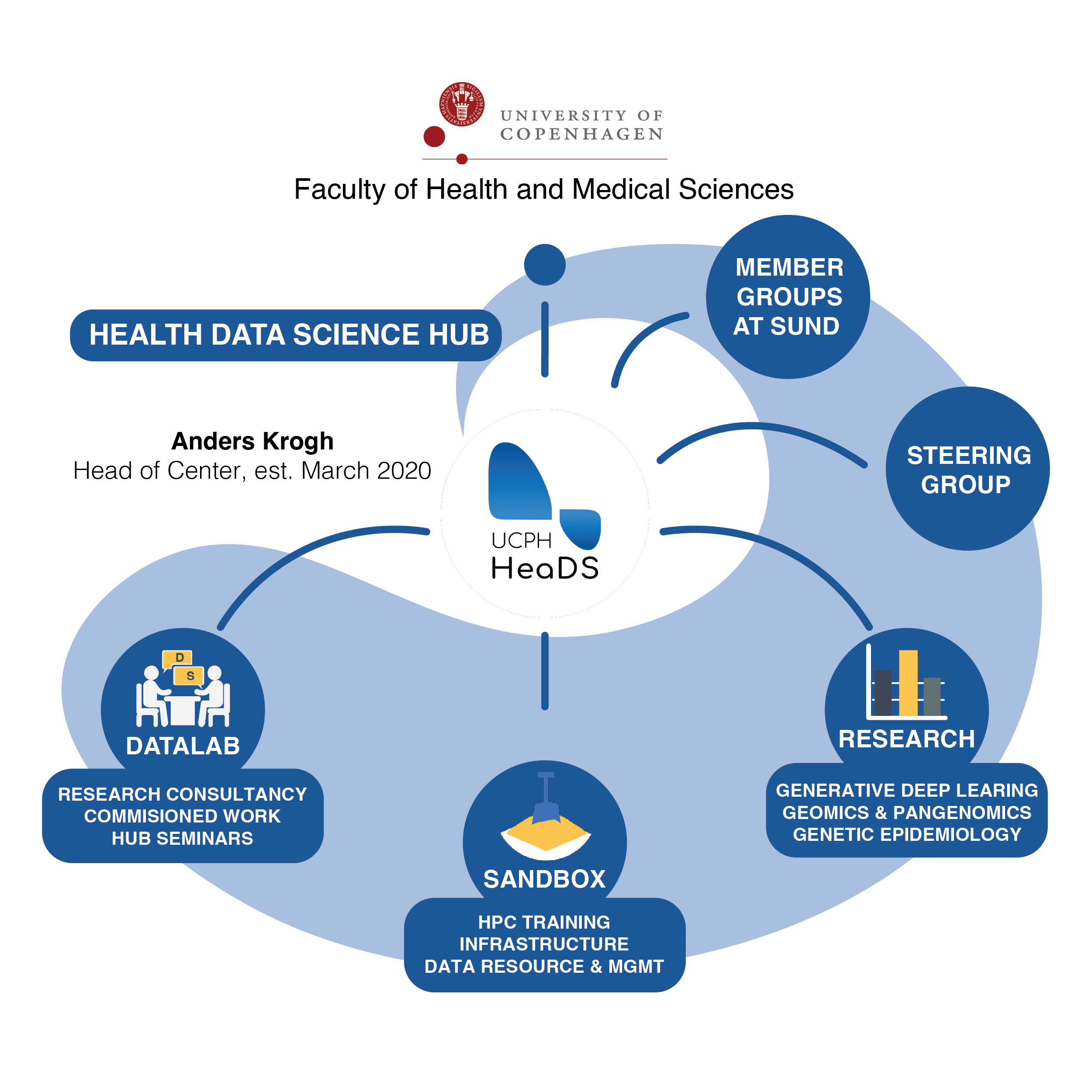Organization

The Center had its official start in March 2020 shortly before the first Covid-19 lockdown. Over the course of 2021-2022 the Center has flourished and now hosts 16 employees, of which 13 are employed directly at HeaDS and three at Department of Computer Science (DIKU).
HeaDS has been established with the support of 16 data science group leaders at SUND who now form the Steering Committee. The Steering Committee meets 4-6 times a year to advise the Head of Center on a variety of Center-related matters and is also directly engaged in some of the Center activities such as the planning of seminars, workshops, and conferences.
HeaDS can be divided in 3 main components:
- Internal Research
HeaDS directly hosts three research groups (two of which are led by newly established PIs):
- Karaderi Group
The group focuses on application of data science methodologies to investigate the genetic and non-genetic factors affecting an individual’s susceptibility to immune-mediated hypothyroidism and its co-morbidities to define more personalized approaches for prevention and treatment, and consequently, to enable precision medicine - Krogh Group
The group is shared between HeaDS and Department of Computer Science. It investigates methods in representation learning and generative modelling, and their applications for medical/clinical data.
- Karaderi Group
- External Research members
HeaDS involves 20 affiliated “external” member research groups spanning nine different departments and centers at SUND
The KU DataLabs have been established at each faculty at the University of Copenhagen with the purpose of providing researchers with help for their data science analysis.
The SUND DataLab at HeaDS is the newest among KU DataLabs.
It supports the data science needs of experimental and clinical researchers at the Faculty, and organizes courses and workshops aiming to expand and improve the data science training options at SUND.
HeaDS hosts the KU division and project coordination of the Health Data Science Sandbox.
The Health Data Science Sandbox is a national project which is building a computational sandbox on high performance computing (HPC) infrastructure for training and research in health data science.
HeaDS is, therefore, the Health Data Science Hub for the Faculty of Health and Medical Science at the University of Copenhagen.
It provides the employees and the students with new courses and curricula for training in health data science that cover skills from basic computing and programming to specialized omics analysis techniques. HeaDS also hosts health data science events and conferences, undertakes research in health data science both as an academic pursuit and as commissioned service and mentorship for other researchers, and is developing new infrastructure for education and methods prototyping, including synthetic health datasets, and HPC training environments.
